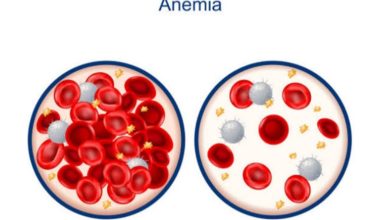Building Immunity, Saving Lives: The Impact of Immunization and Disease Prevention

Immunization is the process of giving a person a vaccine to stimulate their immune system and protect them against specific diseases. Vaccines contain harmless pieces or inactivated forms of the disease-causing organism or toxins produced by the organism. These stimulate an immune response, training the body to recognize and fight off the actual disease if the person is exposed to it in the future.
Schedule of Immunization Programs
Immunization programs typically follow a schedule recommended by health authorities, such as the World Health Organization (WHO) or the Centers for Disease Control and Prevention (CDC) in the United States. And also various National, Regional and District Health Authorities in various countries. The schedule outlines the recommended timing for receiving specific vaccines to ensure optimal protection against various diseases.
The schedule usually starts in infancy, with vaccines given at specific ages to protect against diseases like measles, mumps, rubella, polio, and more. As the child grows, additional vaccines may be recommended at different intervals to provide ongoing protection.
For adults, booster shots are often recommended to maintain immunity against certain diseases. Some vaccines, like the flu shot, may be recommended annually.
Overall, the goal of the immunization schedule is to protect individuals and communities from preventable diseases by ensuring they receive vaccines at the most effective times. It is important to follow the recommended schedule to ensure the best possible protection for yourself and others.
Here is a list of vaccine-preventable diseases:
- Measles: Measles is a highly contagious viral infection that spreads through respiratory droplets. It causes symptoms like high fever, cough, runny nose, rash, and can lead to complications such as pneumonia and encephalitis.
- Polio: Polio is a viral infection that affects the nervous system and can cause paralysis. It spreads through contaminated food, water, or close contact with an infected person.
- Pertussis (Whooping Cough): Pertussis is a respiratory infection caused by bacteria. It causes severe coughing spells, which can lead to vomiting, difficulty breathing, and can be life-threatening, especially in infants.
- Tetanus: Tetanus is a bacterial infection that enters the body through cuts or wounds. It causes muscle stiffness and spasms, which can lead to difficulty swallowing and breathing. Tetanus can be life-threatening.
- Diphtheria: Diphtheria is a bacterial infection that primarily affects the nose and throat. It can cause a thick coating in the back of the throat, leading to difficulty breathing and swallowing. Diphtheria can also affect the heart and nerves.
- Hepatitis B: Hepatitis B is a viral infection that affects the liver. It spreads through contact with infected blood or body fluids. Chronic infection can lead to liver damage, liver cancer, and even death. Hepatitis B can be transmitted from mother to child during childbirth.
- Influenza: Influenza, commonly known as the flu, is a respiratory infection caused by the influenza virus. It can cause mild to severe illness, leading to hospitalization and even death, especially in vulnerable populations such as young children, the elderly, and those with underlying health conditions. Influenza viruses change regularly, so annual vaccination is necessary.
- Pneumococcal Diseases: Pneumococcal diseases are caused by the bacteria Streptococcus pneumoniae. These diseases can range from ear and sinus infections to more severe conditions like pneumonia and meningitis. Infants, older adults, and those with weakened immune systems are at a higher risk of developing severe pneumococcal diseases.
- Mumps: Mumps is a viral infection that primarily affects the salivary glands, causing swelling, fever, and muscle aches. Complications can include swelling of the testicles or ovaries, hearing loss, and inflammation of the brain.
- Rubella (German Measles): Rubella is a viral infection that causes a rash and mild flu-like symptoms. However, it can be particularly dangerous for pregnant women as it can cause severe birth defects or harm the developing baby.
- Varicella (Chickenpox): Chickenpox is a highly contagious viral infection that causes a blister-like rash, itching, fever, and fatigue. Complications can include bacterial infections, pneumonia, and encephalitis.
- Human Papillomavirus (HPV): HPV is a sexually transmitted infection that can cause genital warts and various types of cancers, including cervical, anal, and oropharyngeal cancer. Vaccination against HPV can protect against these cancers.
- Rotavirus: Rotavirus is a common cause of severe diarrhea and vomiting in infants and young children. It can lead to dehydration, which can be life-threatening.
Read Also

The benefits of Immunization are essential and sustainable, let’s discuss the benefits of immunization:
- Prevention of Disease: Immunization is one of the most effective ways to prevent infectious diseases. Vaccines stimulate the immune system, helping it recognize and fight off specific pathogens. By getting vaccinated, individuals can reduce their risk of contracting vaccine-preventable diseases and protect their health.
- Protection of Vulnerable Populations: Some individuals, such as infants, elderly people, and those with weakened immune systems, are more susceptible to severe complications from certain diseases. Immunization helps create a barrier of protection around these vulnerable populations, preventing the spread of infections and reducing the risk of severe illness or death.
- Disease Eradication: Through widespread immunization, it is possible to eradicate certain diseases altogether. Smallpox, for example, was officially declared eradicated in 1980 due to successful global vaccination efforts. By maintaining high vaccination rates, diseases like polio and measles can also be eliminated.
- Cost-Effective: Immunization is not only beneficial from a health standpoint but also from an economic perspective. The cost of preventing diseases through vaccination is significantly lower than the expenses associated with treating and managing those diseases. Immunization programs help save healthcare costs, reduce hospitalizations, and improve productivity.
- Herd Immunity: Herd immunity, also known as community immunity, occurs when a significant portion of the population is immune to a disease. This indirectly protects those who are unable to receive vaccinations or have weak immune systems, such as newborns or individuals with certain medical conditions. When a high percentage of the population is vaccinated, the spread of the disease is limited, making it less likely to reach susceptible individuals.
- Prevention of Outbreaks: Vaccination plays a crucial role in preventing outbreaks of vaccine-preventable diseases. By maintaining high vaccination rates, the transmission of infections is disrupted, reducing the chance of outbreaks occurring in communities. This not only protects individuals but also helps control the spread of diseases on a larger scale.
- Global Health Impact: Immunization programs have a profound impact on global health. Through international efforts, many countries have witnessed significant reductions in the incidence of vaccine-preventable diseases. This not only saves lives but also advances health equity by ensuring that vulnerable populations have access to life-saving vaccines.
It is important to consult with healthcare professionals or primary care physicians to ensure that you and your loved ones are up to date on recommended immunizations. Vaccination schedules may vary based on age, underlying health conditions, and specific recommendations from health authorities in your region.
Remember to seek accurate and reliable information about vaccines from reputable sources such as the World Health Organization (WHO), National Centers for Disease Control and Prevention (CDC), or your state and local health department. Speak to healthcare professionals who can address any concerns or questions you may have regarding vaccines.
Immunization is a powerful tool in preventing the spread of infectious diseases and protecting both individuals and communities. By getting vaccinated and encouraging others to do the same, we can collectively contribute to a healthier and safer world.




One Comment